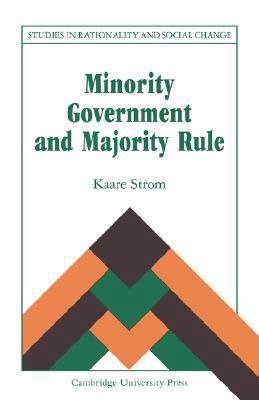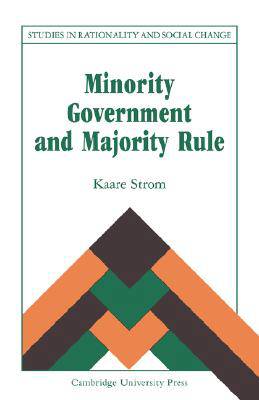
- Afhalen na 1 uur in een winkel met voorraad
- Gratis thuislevering in België vanaf € 30
- Ruim aanbod met 7 miljoen producten
- Afhalen na 1 uur in een winkel met voorraad
- Gratis thuislevering in België vanaf € 30
- Ruim aanbod met 7 miljoen producten
Zoeken
Omschrijving
Minority governments in parliamentary democracies are conventionally considered to be unstable and ineffective aberrations from the principle of majority rule. Through analysis of over 350 postwar governments, the author shows that minority governments are neither exceptional nor unstable but in fact a common feature of parliamentary democracies and frequently perform as well as, or better than, majority coalitions. Using the Italian and Norwegian governments as case studies, he suggests that minority governments are particularly likely to form when parties anticipate competitive elections and when opposition parties are able to influence legislative decisions. As an attempt to document and explain a very common form of government in parliamentary democracies, this book will contribute significantly to the understanding of the importance of electoral competition in democratic politics.
Specificaties
Betrokkenen
- Auteur(s):
- Uitgeverij:
Inhoud
- Aantal bladzijden:
- 304
- Taal:
- Engels
- Reeks:
Eigenschappen
- Productcode (EAN):
- 9780521064729
- Verschijningsdatum:
- 12/06/2008
- Uitvoering:
- Paperback
- Formaat:
- Trade paperback (VS)
- Afmetingen:
- 140 mm x 216 mm
- Gewicht:
- 385 g

Alleen bij Standaard Boekhandel
+ 155 punten op je klantenkaart van Standaard Boekhandel
Beoordelingen
We publiceren alleen reviews die voldoen aan de voorwaarden voor reviews. Bekijk onze voorwaarden voor reviews.











